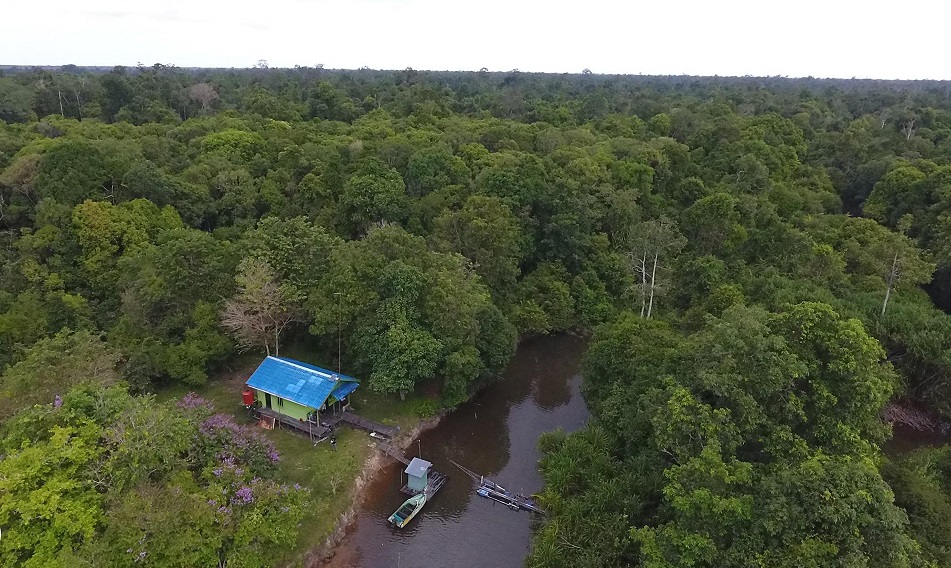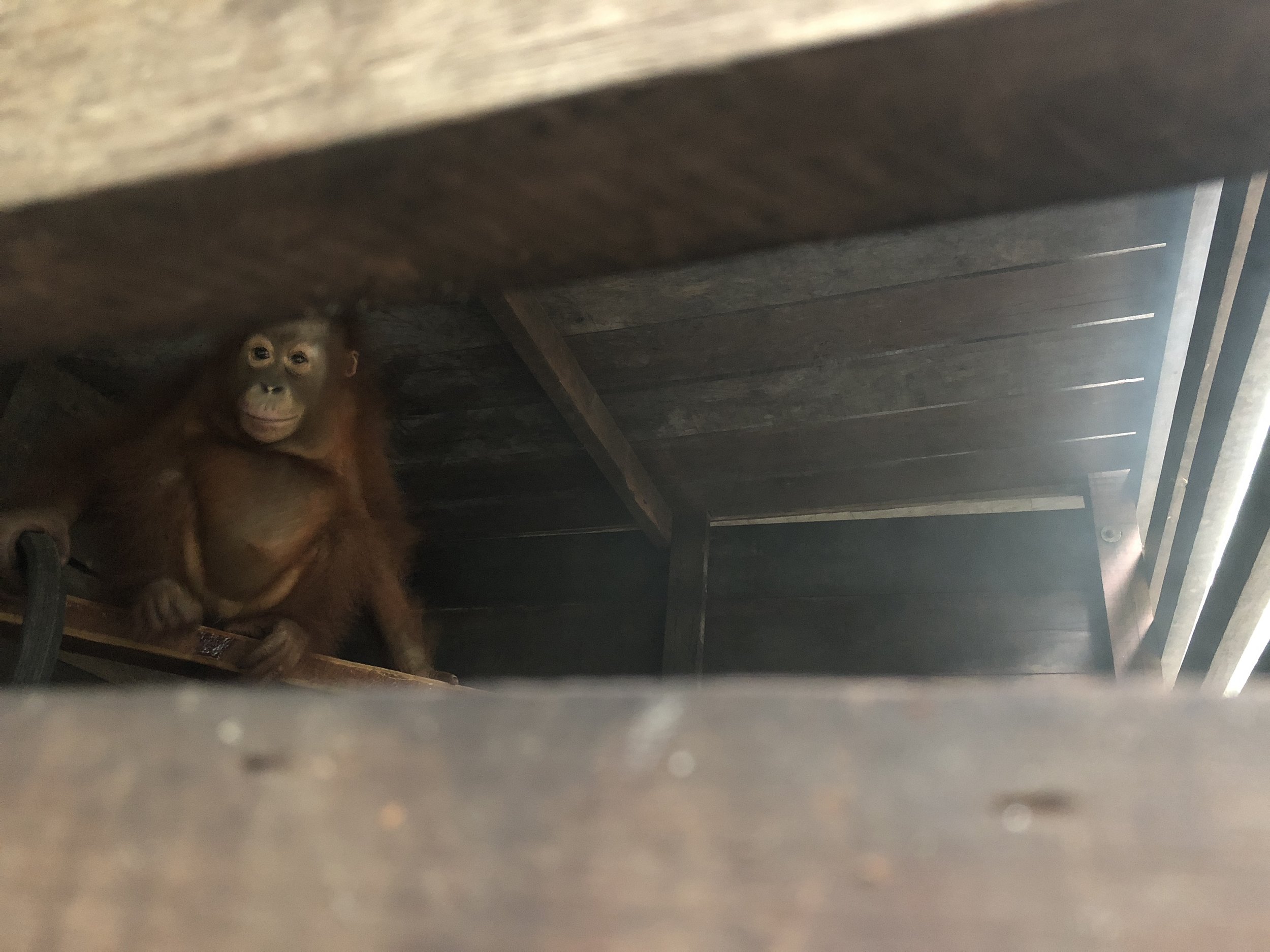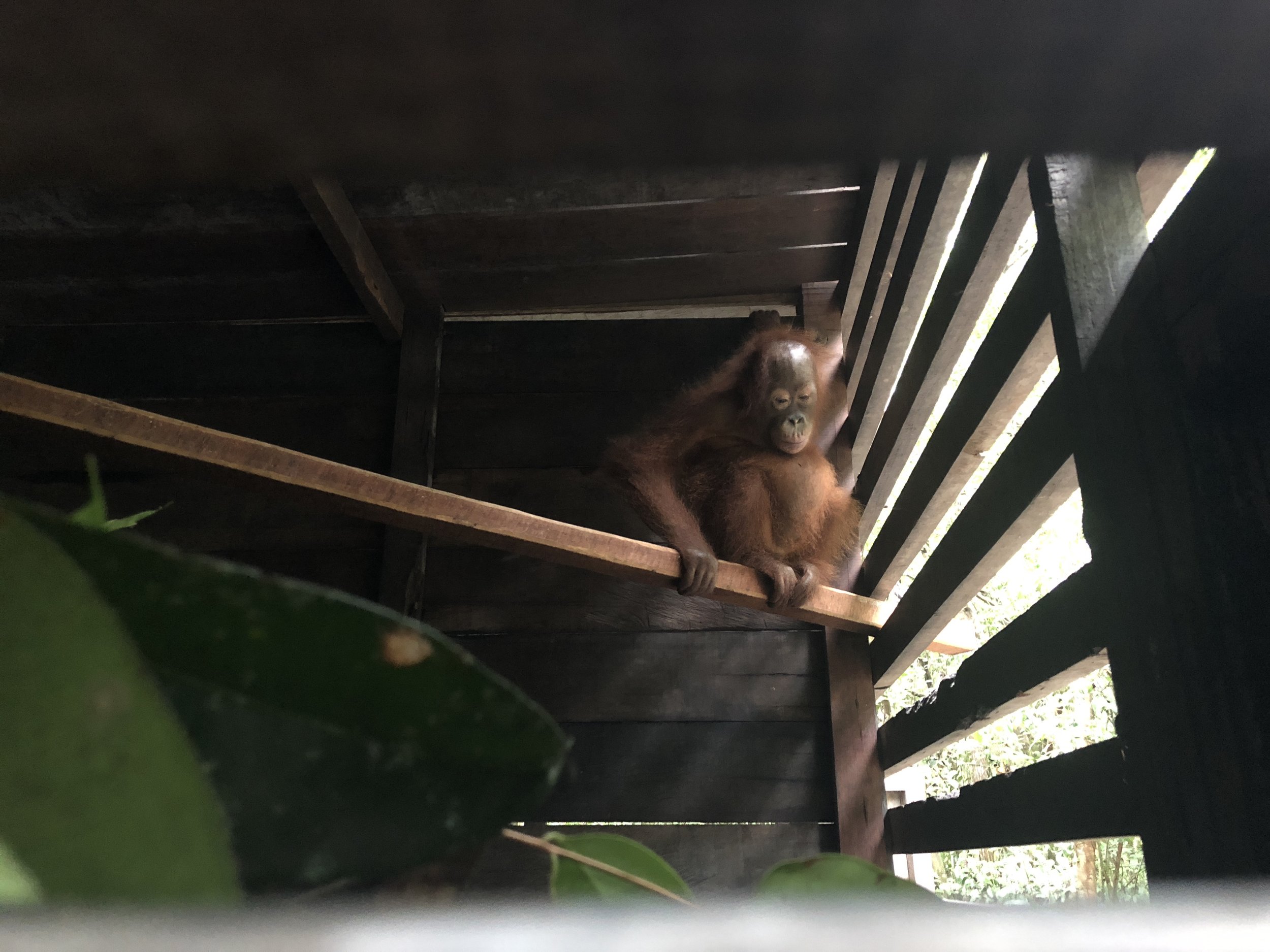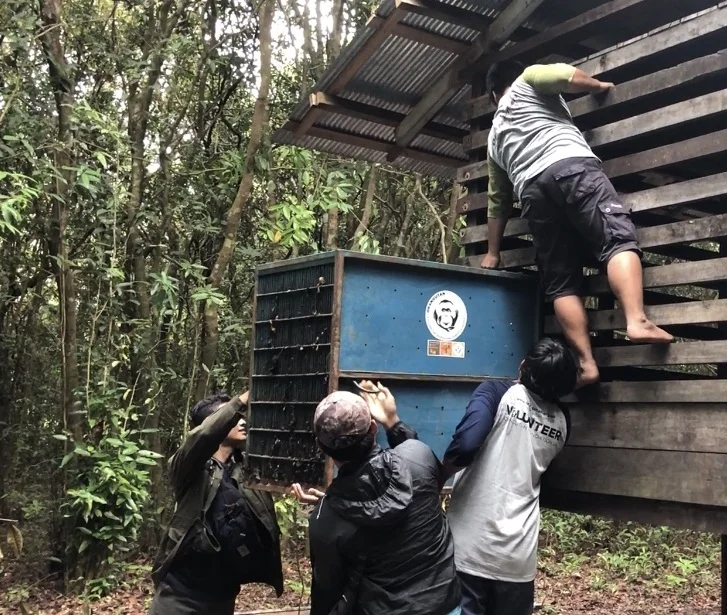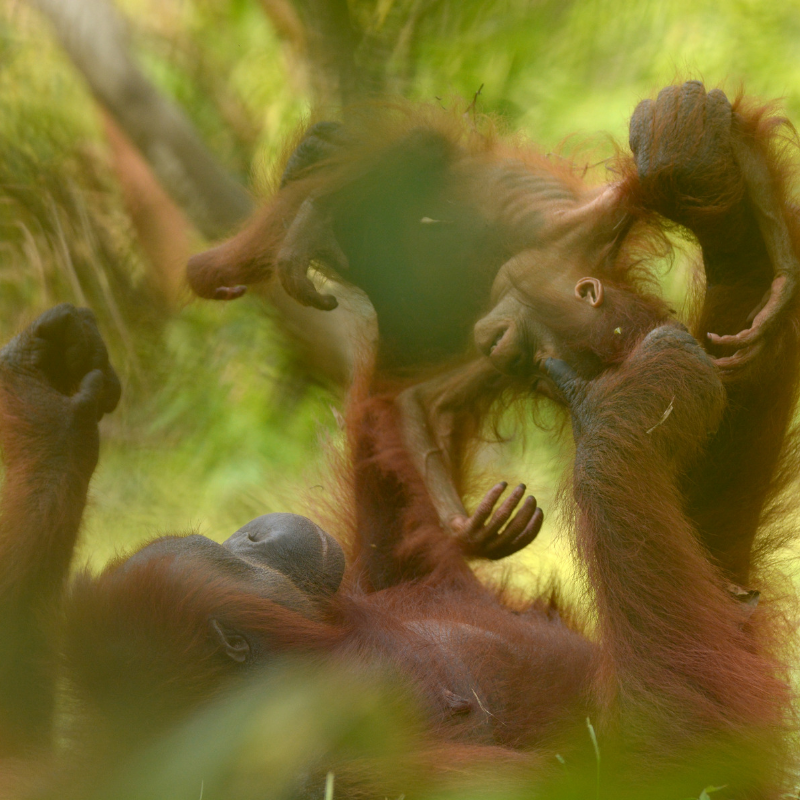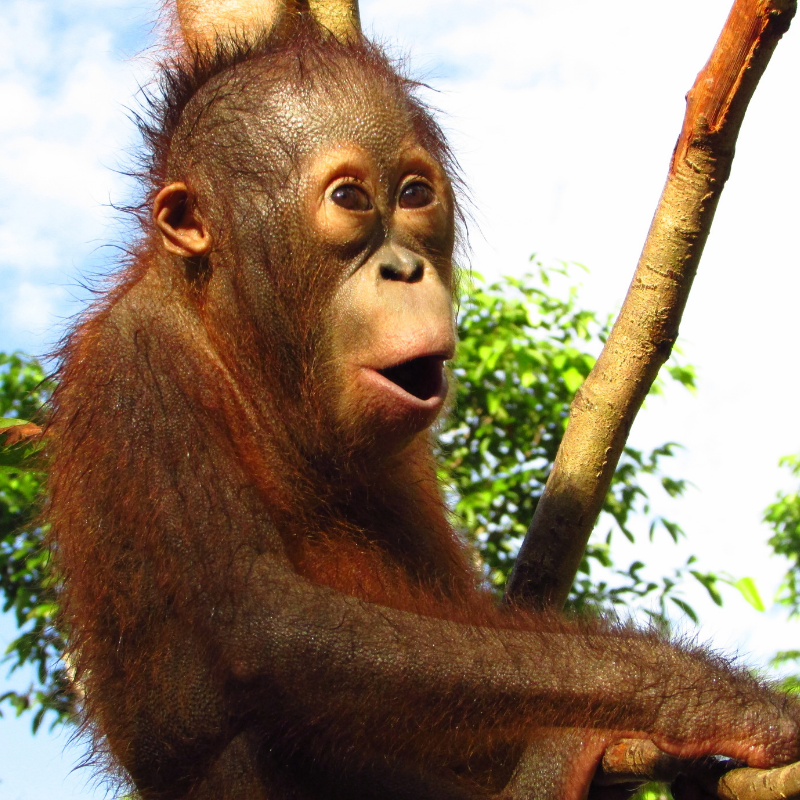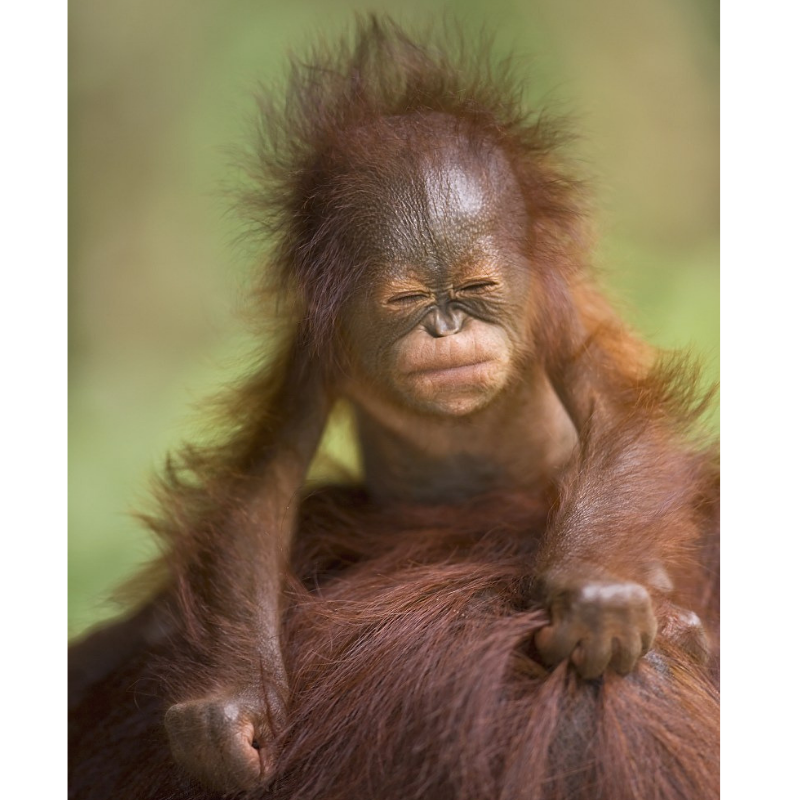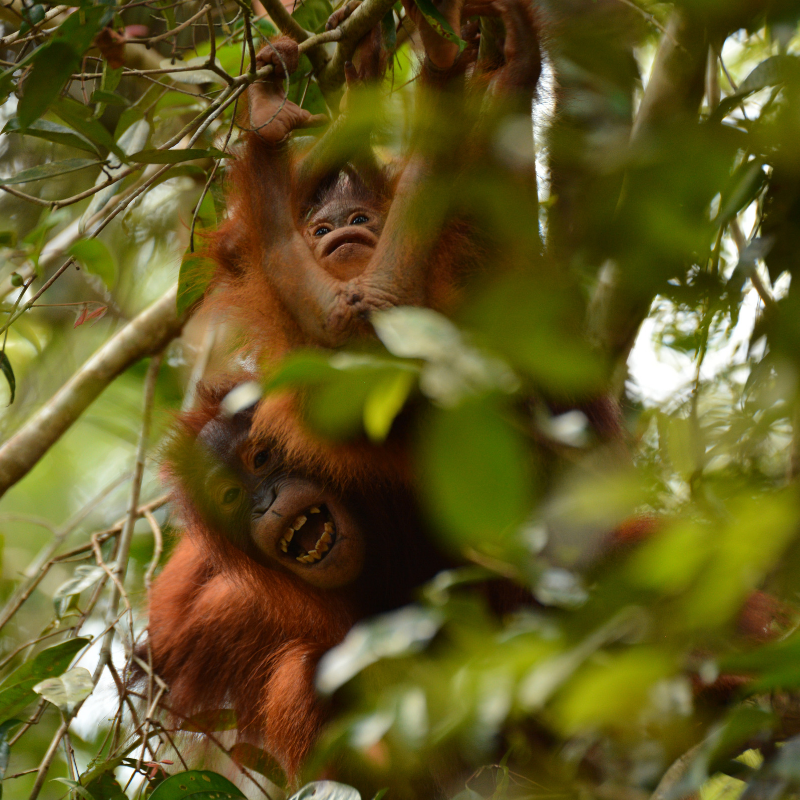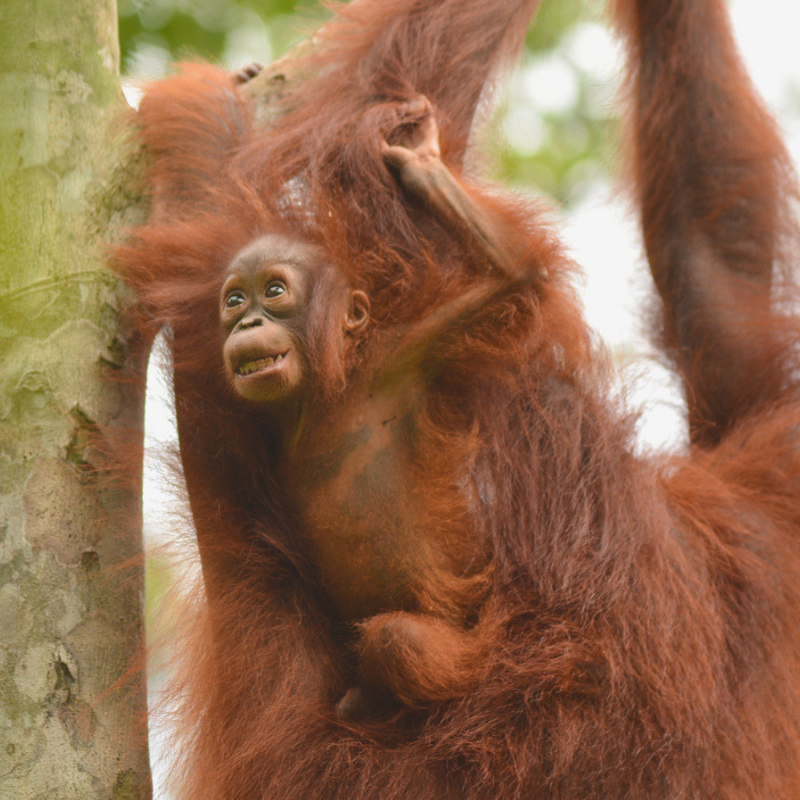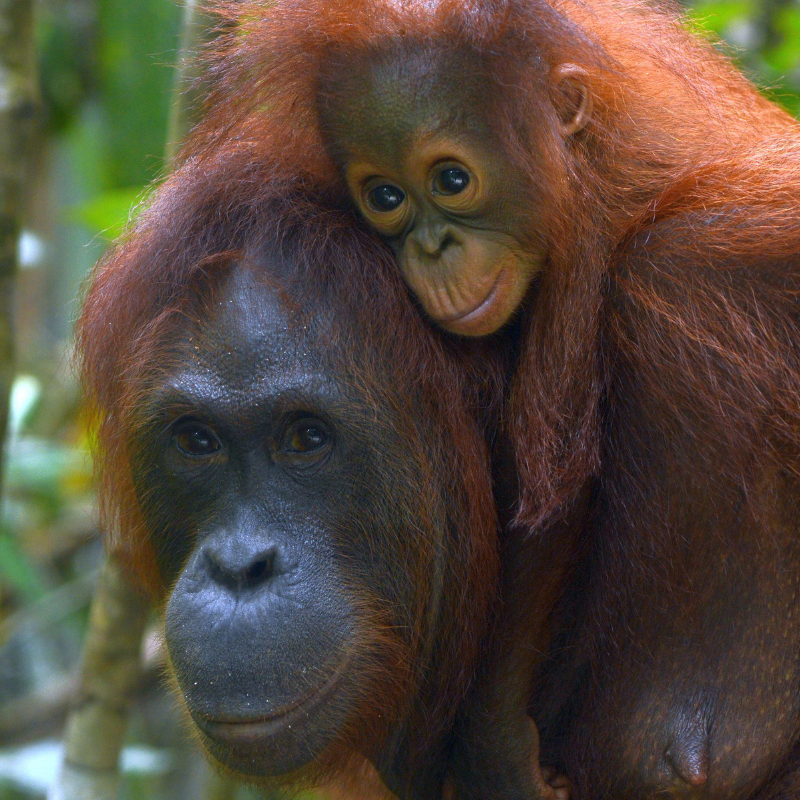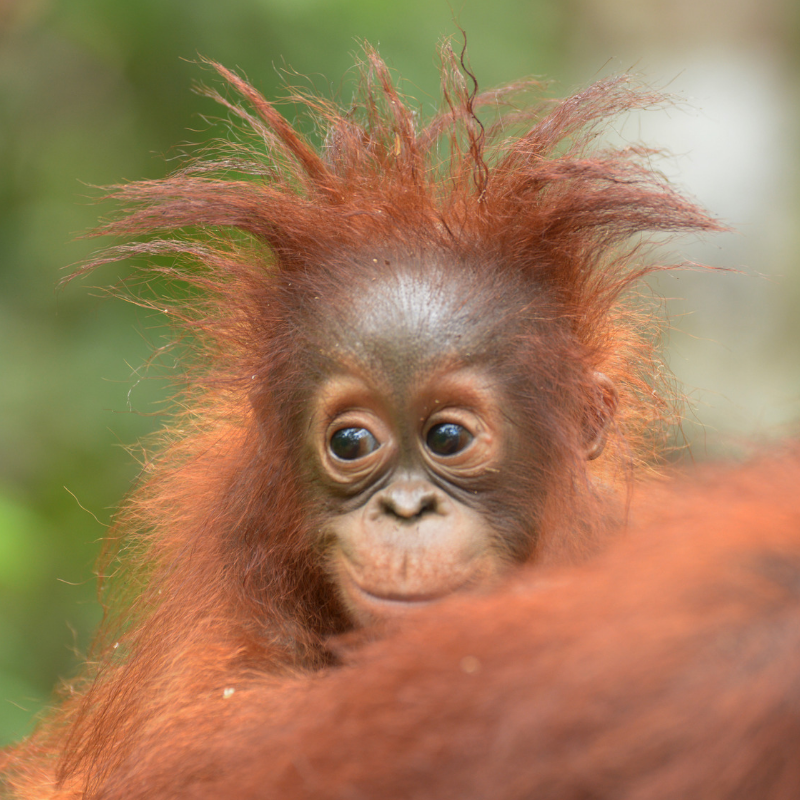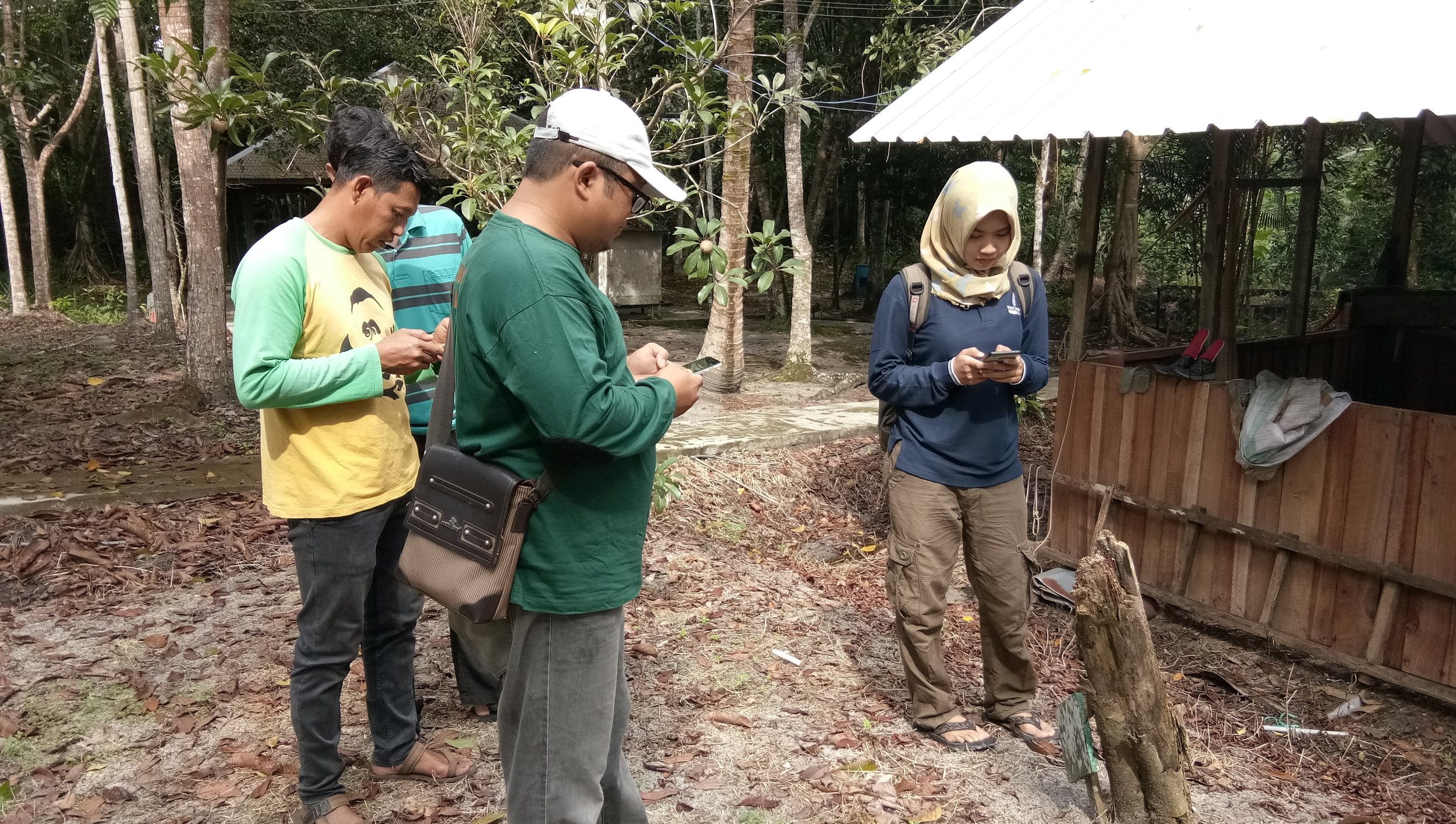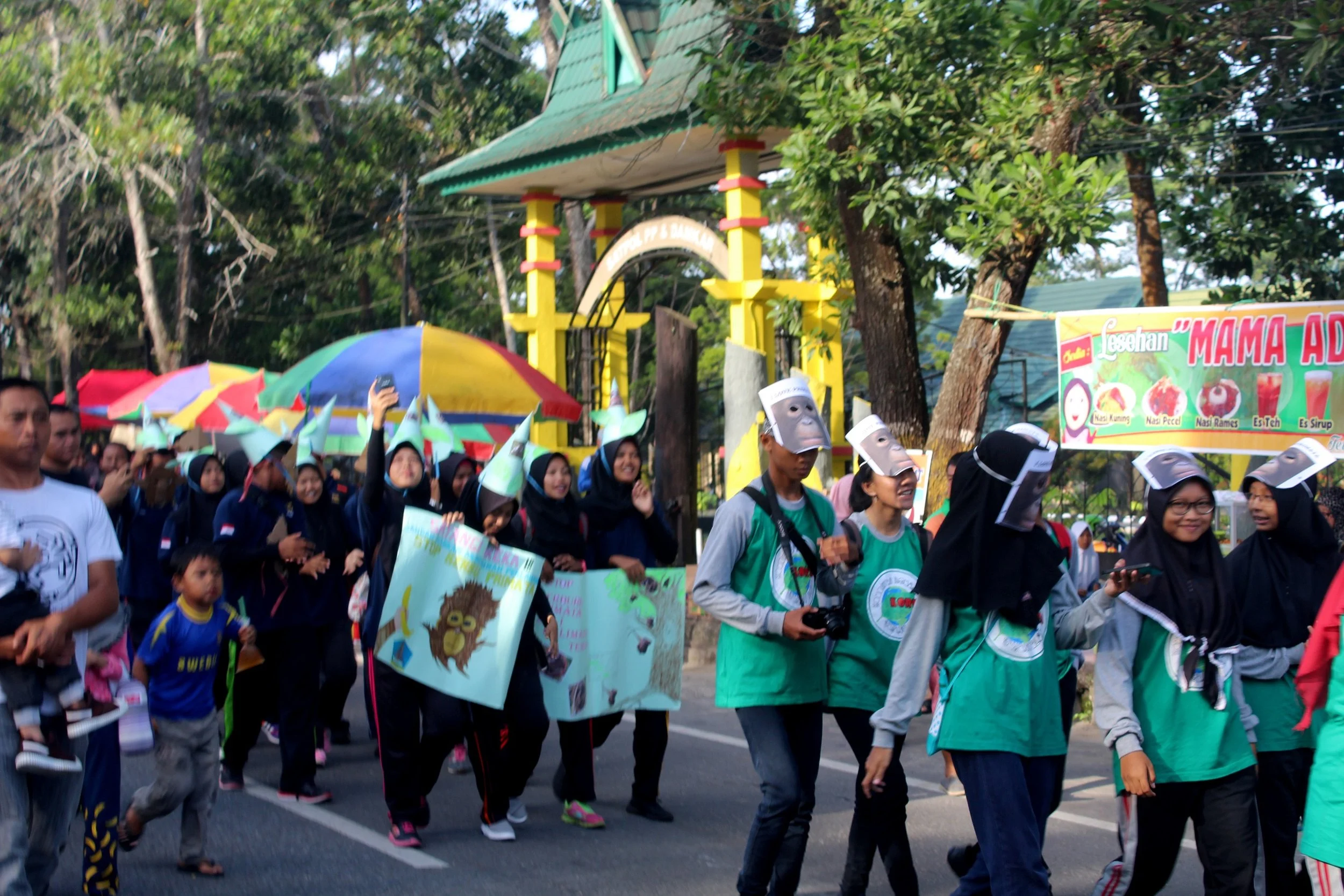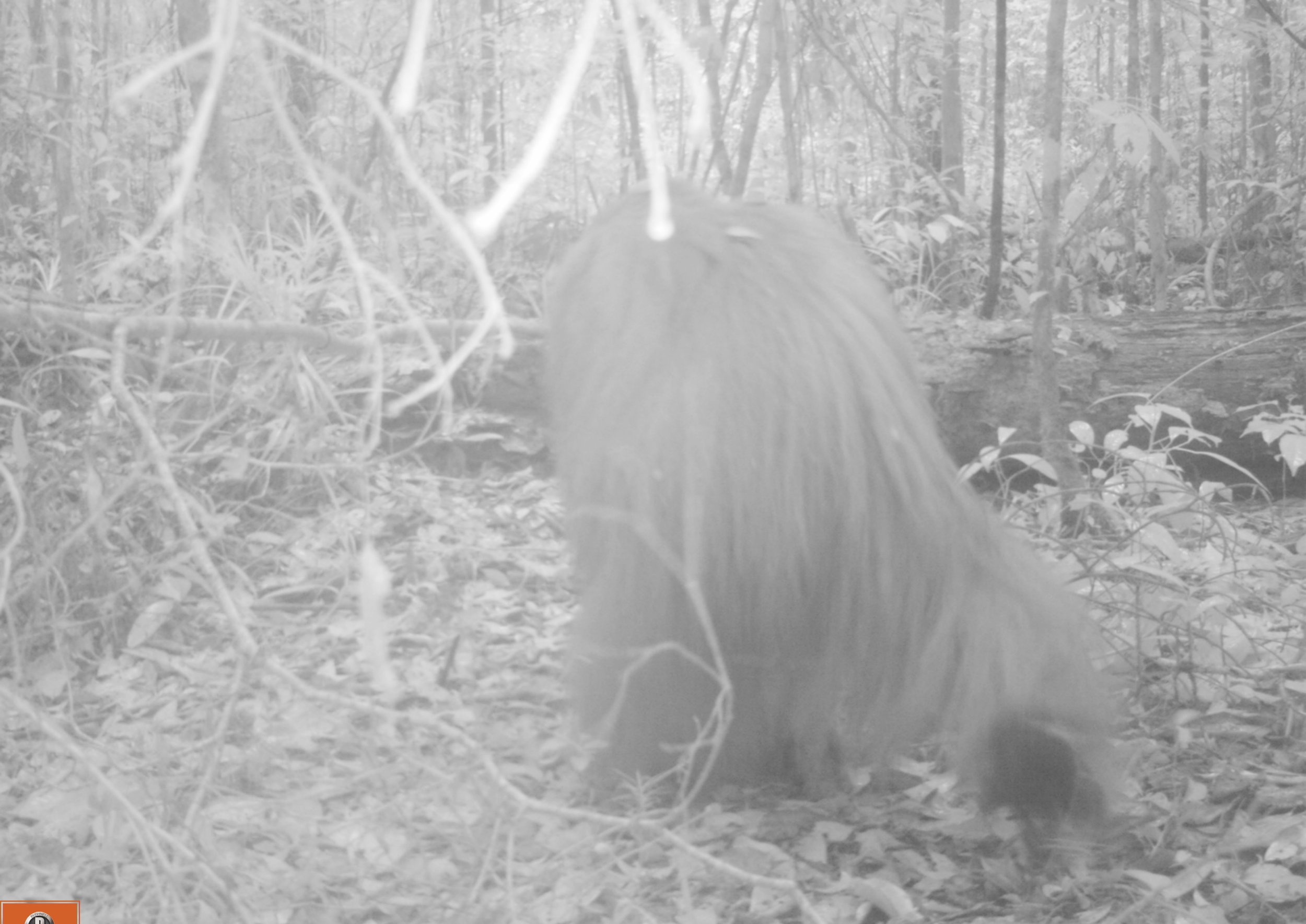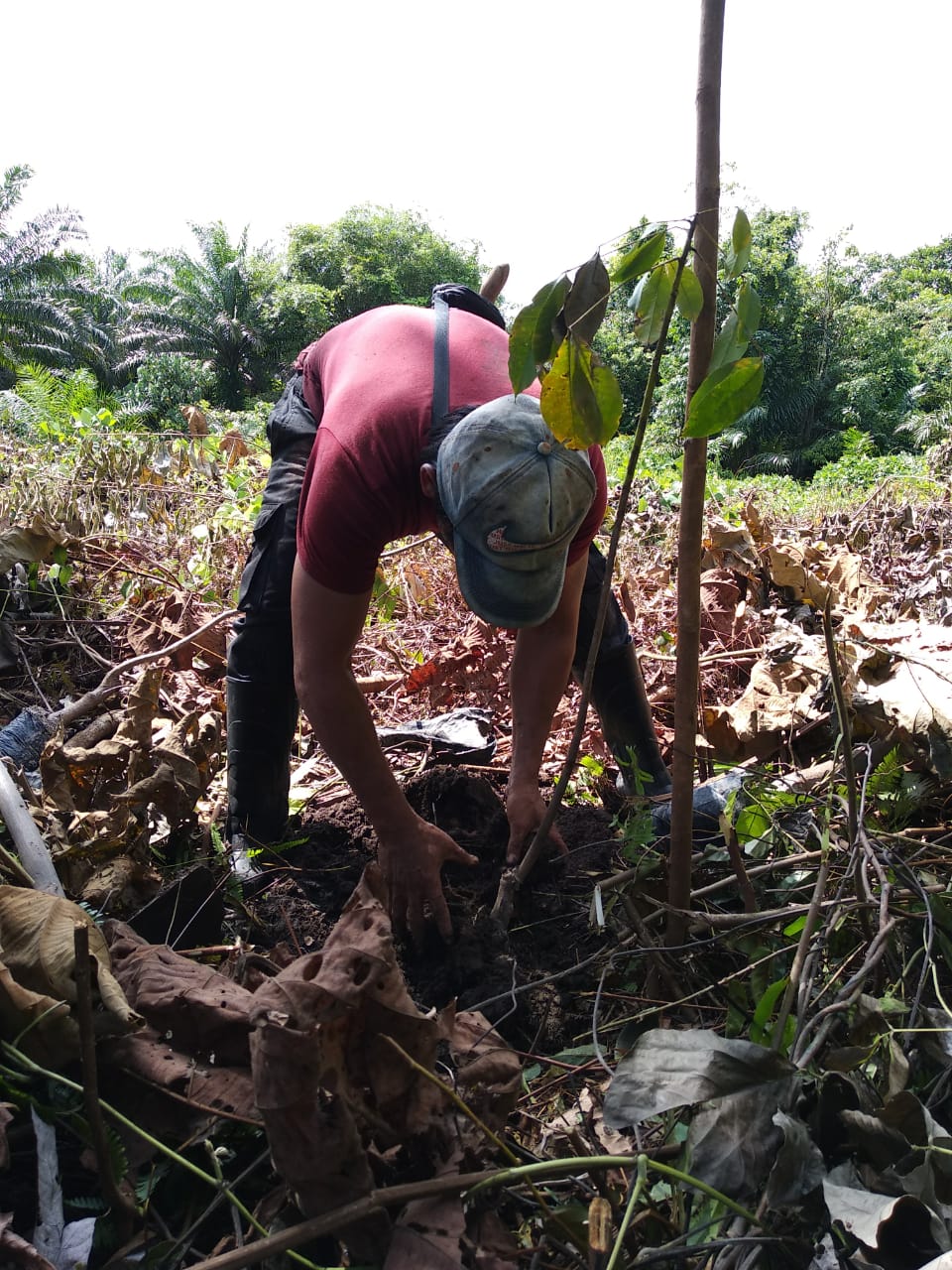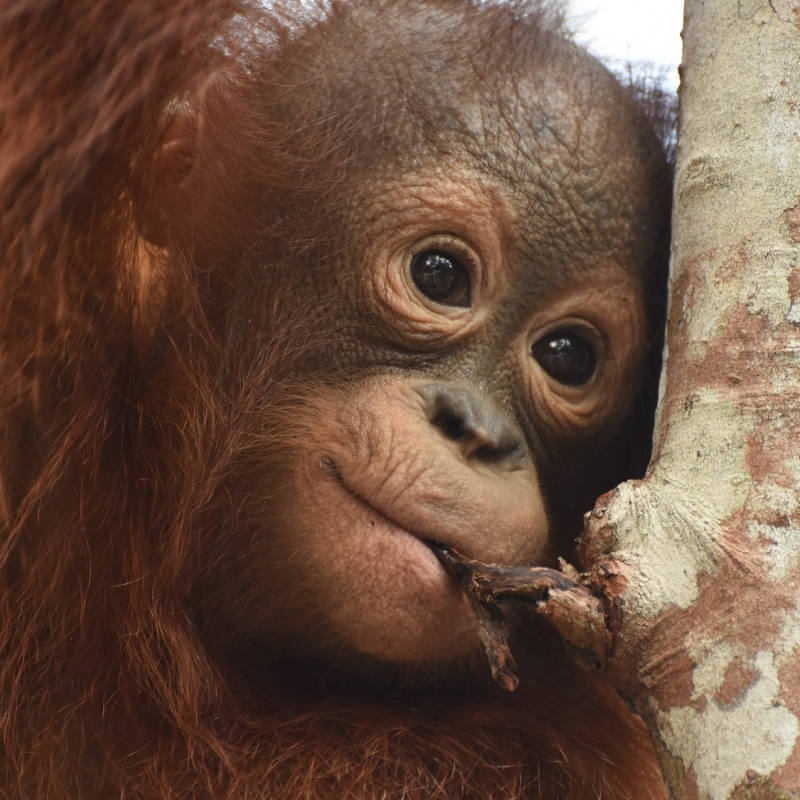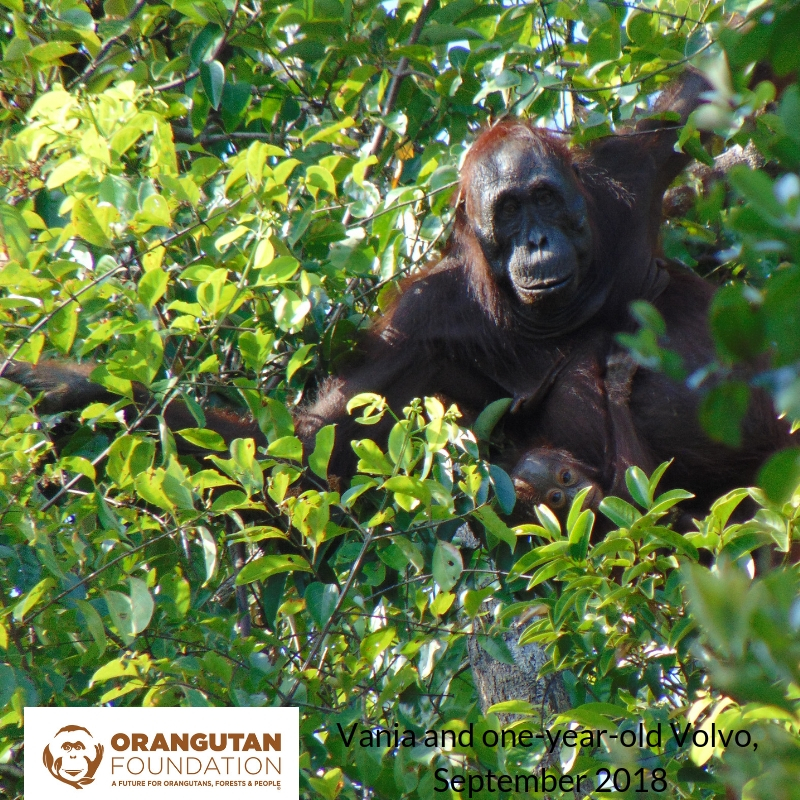Two critically endangered orangutans are now back in the wild, where they belong, thanks to the dedicated work of the Orangutan Foundation’s team and the Natural Resources Conservancy Agency of Central Kalimantan (BKSDA).
Both orangutans were wild born but tragically ended up orphaned and rescued by Orangutan Foundation. Shifa was rescued from being kept as a pet in September 2016, when she was only 2-years-old. Panglima, was rescued at the end of March 2019, from community forest, he is thought to be about 5-years-old but showed extremely wild behaviour (read more about his rescue).
Shifa rescued in September 2016
Habitat loss is forcing wild orangutans into closer contact with humans. We can’t say for sure what happened to the mothers of Shifa and Panglima but it is most likely they were killed, because they were considered as pests. As an infant, Shifa would have been clinging to her mother and so she was taken to become a pet. Panglima, being older and more independent, must have been apart from his mother when she was killed.
Panglima rescue by Orangutan Foundation and Wildlife Department (BKSDA) Central Kalimantan
Shifa was taken to the 158,000-acre protected Lamandau Wildlife Reserve, Central Kalimantan, Indonesian Borneo. She lived at Camp Buluh, one of five post-release monitoring sites in the reserve, which she shared with another orphaned orangutan, Okto. The two young orangutans were great playmates and Okto helped Shifa to adjust to her new life.
Okto (left) and Shifa (right)
Shifa always displayed very wild instincts and, as she got older, these became stronger and more evident. Increasingly she would go off exploring the surrounding forest and was reluctant to return to her enclosure at night.
Shifa in her nest and increasingly reluctant to go back into her enclosure.
It was decided to release Shifa before she released herself! When an orangutan is fully released back to an independent life, Orangutan Foundation staff follow the individual for up to two weeks to ensure the orangutan is able to survive. Ashley Leiman OBE, Orangutan Foundation Founder and Director/Trustee, was present for the two releases and was encouraged to see how readily both orangutans clambered up into the trees to begin their new life.
As soon as the transport cage door opened, Shifa shot straight out and climbed up the nearest tree
Shifa and Panglima have had to overcome massive hurdles early on in their life. Our challenge now is to ensure the rest of their life is spent in the wild. We are doing this by safeguarding their globally important forest habitat in Lamandau Wildlife Reserve. Orangutan Foundation actively monitor the reserve with a network of guard posts and regular patrolling to prevent illegal activities from destroying the forests and harming wildlife.












